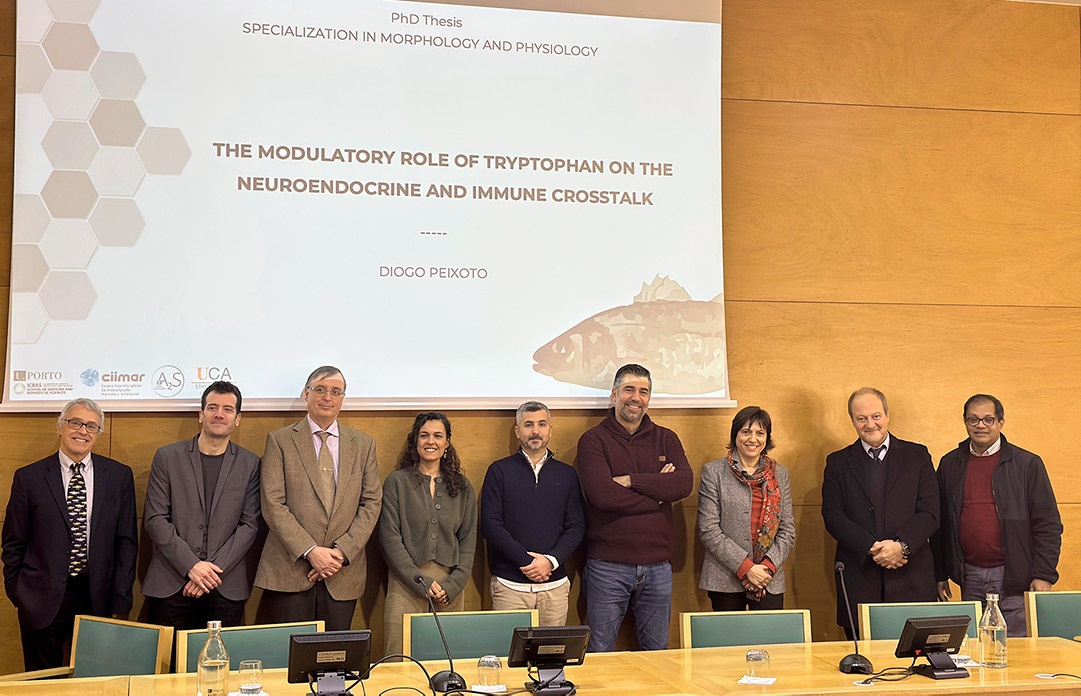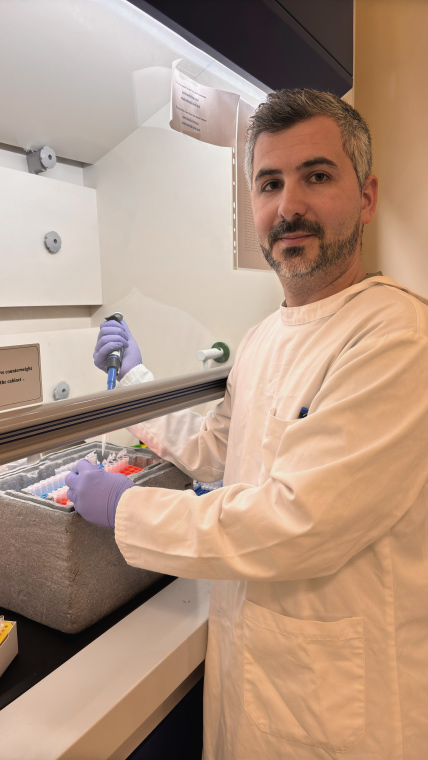
Tryptophan, an essential amino acid known for its therapeutic and preventative implications, has shown promising results in mitigating the effects of stress in aquaculture fish when they are subjected to specific stressful situations.
This essential amino acid, which cannot be synthetized by organisms on their own and must be included in their diet, plays a crucial role in the production of serotonin. This, in turn, affects stress response and cortisol production control.
A recent thesis defended by Diogo da Silva Molinos Peixoto at the Abel Salazar Biomedical Sciences Institute (ICBAS) of the University of Porto addressed the “neuromodulatory role of tryptophan at the neuroendocrine and immune crossroad” during high confinement, vaccination, or bacterial challenges-situations where fish, specially at juvenile stages, experience stress.
Specifically, Peixoto’s work has focused on the ability of tryptophan to be metabolised into serotonine—a key neurotransmitter. This research has significant implications for the aquaculture industry, as the findings support specific recommendations for managing health and animal welfare.
According to Diogo Peixoto, speaking to misPeces, tryptophan supplementation not only enhances the neuroendocrine response, regulating stress and cortisol production but also has a direct effect on improving the immune response of fish.
 During his thesis, Diogo Peixoto worked with European sea bass. Generally, as he explains, this knowledge could be applied to other commercially important teleost species in aquaculture, with necessary adjustments.
During his thesis, Diogo Peixoto worked with European sea bass. Generally, as he explains, this knowledge could be applied to other commercially important teleost species in aquaculture, with necessary adjustments.
As he has verified though work carried out over recent years, supplementing feed with tryptophan is effective whether feeding fish under stress conditions for 15 days or just three days before a inflamation process.
While tryptophan is an amino acid that may initially be more costly than other supplements, its high efficacy at low concentrations makes it a competitive option against another like inosine combined with vitamin E. In this context, as Peixoto point out, producers must consider the cost-benefit since stress is a cause of mortality in fish in the previously described situations, making this supplementation a viable option.
The next steps involve further deciphering the exact mechanisms and applying this knowledge in aquaculture, as well as exploring the implications of tryptophan in enzyme dynamics, specifically serotonin, and finding the optimal dosages for each case.
This thesis, which was evaluated by an international panel and received the highest rating, consists of six articles published in high-level scientific journals. Dr. Rita Azeredo and Dr. Benjamín Costas, who co-supervised the thesis, highlight that these findings “could change the way we manage health in aquaculture, making tryptophan a potentially essential supplement.”
The researcher also acknowledged the support of the department headed by Juan Miguel Mancera at the University of Cadiz, which has extensive experience in studying stress mechanisms in fish.


